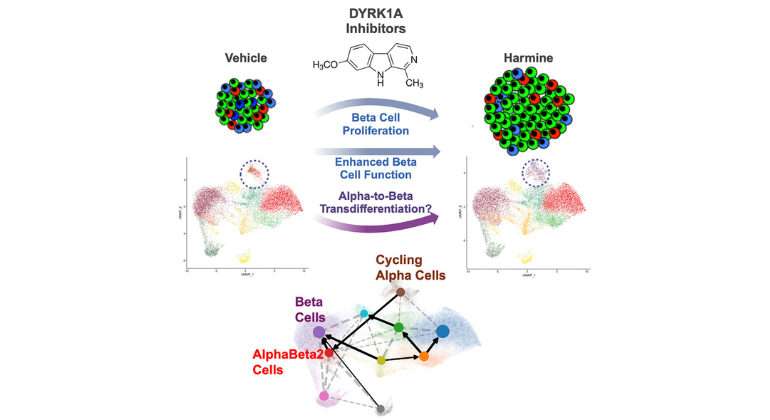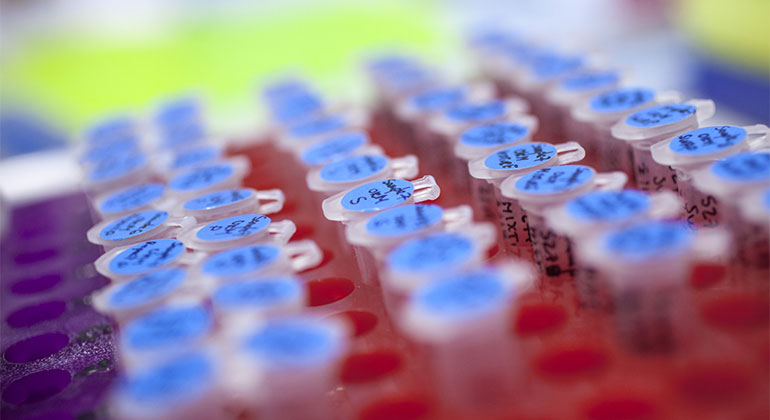Diabetic Kidney Failure May Be Reversed with Low-Carbohydrate Diet
Researchers have found that by administering a low-carb, high-fat diet in mice, that diabetic kidney damage was reversed, and also uncovered an array of genes associated with kidney failure.
Researchers from Mount Sinai School of Medicine have for the first time determined that the ketogenic diet, a specialized high-fat, low carbohydrate diet, may reverse impaired kidney function in Type 1 and Type 2 diabetes. They also identified a previously unreported panel of genes associated with diabetes-related kidney damage, whose changes in expression were reversed by the diet. The findings were published online in the peer-reviewed journal PLoS ONE.
Charles Mobbs, PhD, Professor of Neuroscience and Geriatrics and Palliative Care Medicine at Mount Sinai School of Medicine, and his research team evaluated mice that were genetically predisposed to have Type 1 or 2 diabetes. The mice were allowed to develop diabetic nephropathy, or kidney damage. Half of the mice were put on the ketogenic diet, while the control group maintained a standard high carbohydrate diet. The researchers found that after eight weeks, molecular and functional indicators of kidney damage were reversed in the mice on the ketogenic diet. Microscopic analysis showed that kidney pathology in the model of Type 2 diabetes was partially reversed.
"Our study is the first to show that a dietary intervention alone is enough to reverse this serious complication of diabetes," said Dr. Mobbs. "This finding has significant implications for the tens of thousands of Americans diagnosed with diabetic kidney failure, and possibly other complications, each year."
The ketogenic diet is a low-carbohydrate, moderate protein, and high-fat diet typically used to control seizures in children with epilepsy. Many cells can get their energy from ketones, which are molecules produced when the blood glucose levels are low and blood fat levels are high. When cells use ketones instead of glucose for fuel, glucose is not metabolized. Since high glucose metabolism is thought to cause kidney failure in diabetes, researchers hypothesized that the ketogenic diet would block those toxic effects of glucose. Considering the extreme requirements of the diet, it is not a long-term solution in adults. However, Dr. Mobbs’ research indicates that exposure to the diet for a limited period may be sufficient to "reset" the gene expression and pathological process leading to kidney failure.
The researchers also identified a large array of cellular stress-related genes expressed during diabetic nephropathy not previously known to play a role in the development of this complication. The team found that the expression of these genes was also reversed in the mice on the ketogenic diet.
Dr. Mobbs and his team plan to continue to research the impact of the ketogenic diet and the mechanism by which it may reverse kidney failure in people with diabetes, and in age-related kidney failure. He believes the ketogenic diet could help treat some neurological diseases and retinopathy, a disease that results in vision loss.
"Knowing how the ketogenic diet reverses nephropathy will help us identify a drug target and subsequent pharmacological interventions that mimic the effect of the diet," said Dr. Mobbs. "We look forward to studying this promising development further."
This study was funded partly by the National Institutes of Health and by the Juvenile Diabetes Research Foundation.
About The Mount Sinai Medical Center
The Mount Sinai Medical Center encompasses both The Mount Sinai Hospital and Mount Sinai School of Medicine. Established in 1968, Mount Sinai School of Medicine is one of few medical schools embedded in a hospital in the United States. It has more than 3,400 faculty in 32 departments and 15 institutes, and ranks among the top 20 medical schools both in National Institute of Health funding and by U.S. News & World Report. The school received the 2009 Spencer Foreman Award for Outstanding Community Service from the Association of American Medical Colleges.
The Mount Sinai Hospital, founded in 1852, is a 1,171-bed tertiary- and quaternary-care teaching facility and one of the nation's oldest, largest and most-respected voluntary hospitals. U.S. News & World Report consistently ranks The Mount Sinai Hospital among the nation's best hospitals based on reputation, patient safety, and other patient-care factors. Nearly 60,000 people were treated at Mount Sinai as inpatients last year, and approximately 530,000 outpatient visits took place.
For more information, visit http://www.mountsinai.org/.
Find Mount Sinai on:
Facebook: http://www.facebook.com/mountsinainyc
Twitter @mountsinainyc
YouTube: http://www.youtube.com/mountsinainy
About the Mount Sinai Health System
Mount Sinai Health System is one of the largest academic medical systems in the New York metro area, with 48,000 employees working across seven hospitals, more than 400 outpatient practices, more than 600 research and clinical labs, a school of nursing, and a leading school of medicine and graduate education. Mount Sinai advances health for all people, everywhere, by taking on the most complex health care challenges of our time—discovering and applying new scientific learning and knowledge; developing safer, more effective treatments; educating the next generation of medical leaders and innovators; and supporting local communities by delivering high-quality care to all who need it.
Through the integration of its hospitals, labs, and schools, Mount Sinai offers comprehensive health care solutions from birth through geriatrics, leveraging innovative approaches such as artificial intelligence and informatics while keeping patients’ medical and emotional needs at the center of all treatment. The Health System includes approximately 9,000 primary and specialty care physicians and 10 free-standing joint-venture centers throughout the five boroughs of New York City, Westchester, Long Island, and Florida. Hospitals within the System are consistently ranked by Newsweek’s® “The World’s Best Smart Hospitals, Best in State Hospitals, World Best Hospitals and Best Specialty Hospitals” and by U.S. News & World Report's® “Best Hospitals” and “Best Children’s Hospitals.” The Mount Sinai Hospital is on the U.S. News & World Report® “Best Hospitals” Honor Roll for 2025-2026.
For more information, visit https://www.mountsinai.org or find Mount Sinai on Facebook, Instagram, LinkedIn, X, and YouTube.

NIH Awards $10 Million for the New York Regional Diabetes Research Center
Oct 23, 2025 View All Press Releases
Mount Sinai Researchers Move Closer to a Cure for Diabetes
Dec 10, 2024 View All Press Releases
Diabetes May Accelerate Blood Cancer Growth, Yet Survival Outcomes Differ by Race
Sep 29, 2023 View All Press Releases
Researchers Identify Potential Target for Treatment Among Patients With Type 2 Diabetes
Aug 04, 2022 View All Press Releases
SARS-CoV-2 Infection Likely Not Associated With Increased Risk of New-Onset Diabetes
Feb 22, 2022 View All Press ReleasesArtificial Pancreas System Better Controls Blood Glucose Levels than Current Technology
Oct 16, 2019 View All Press Releases
